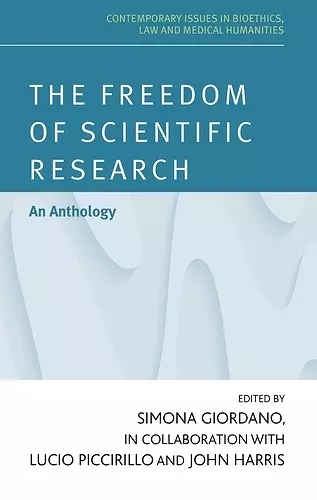The Freedom of Scientific Research
Bridging the Gap Between Science and Society
John Harris editor Simona Giordano editor Lucio Piccirillo editor
Format:Hardback
Publisher:Manchester University Press
Published:21st Sep '18
Currently unavailable, and unfortunately no date known when it will be back

Never before have the scope and limits of scientific freedom been more important or more under attack. New science, from artificial intelligence to gene editing, creates unique opportunities for making the world a better place. It also presents unprecedented dangers. This book is about the opportunities and challenges – moral, regulatory and existential – that face both science and society. How are scientific developments impacting on human life and on the structure of societies? How is science regulated and how should it be regulated? Are there ethical boundaries to scientific developments in sensitive areas? Such are the questions that the book seeks to answer. Both the survival of humankind and the continued existence of our planet are at stake.
An electronic edition of this book is freely available under a Creative Commons (CC BY-NC-ND) licence.
'This book is a valuable contribution and resource in two senses. First, it explores the question of scientific freedom in our contemporary world of ideological debates about abortion, the use of embryos in research, vaccinations, and radical new surgical techniques. Second, it discusses new areas of technology and research that also raise definitional, ethical, legal, and policy issues. There are chapters on aging and longevity, reproductive technologies and the family, new frontiers in surgery (such as uterus and penis transplants), mitochondrial transfer, research on pathogens and biosecurity, robotic intelligence, and new frontiers in physics. The contributors' focus on freedom includes freedom of scientific research and the freedom of citizens and society to make informed decisions about treatments and about limiting or preventing scientific exploration. Does wider access to scientific education enhance people’s ability to evaluate facts and to think critically? But what if people still choose to remain in ignorance? Is limiting scientific research also limiting the right to life and the physical integrity of those who would benefit from that research? Might scientific freedom be hindered by ideologies that do not stand up to moral or rational scrutiny?'
J. A. Kegley, California State University, Bakersfield, Choice Reviews, September 2019, Vol. 57, No.1
ISBN: 9781526127679
Dimensions: 234mm x 156mm x 16mm
Weight: 544g
264 pages